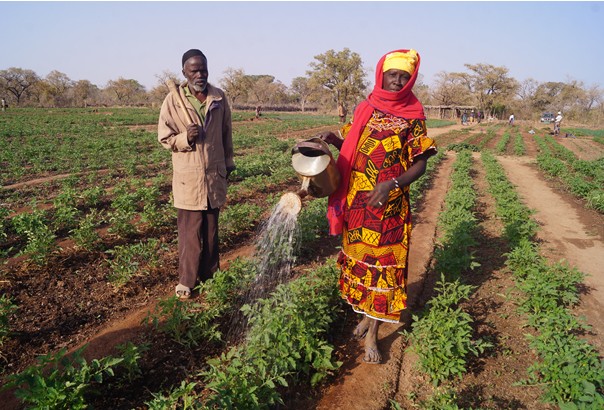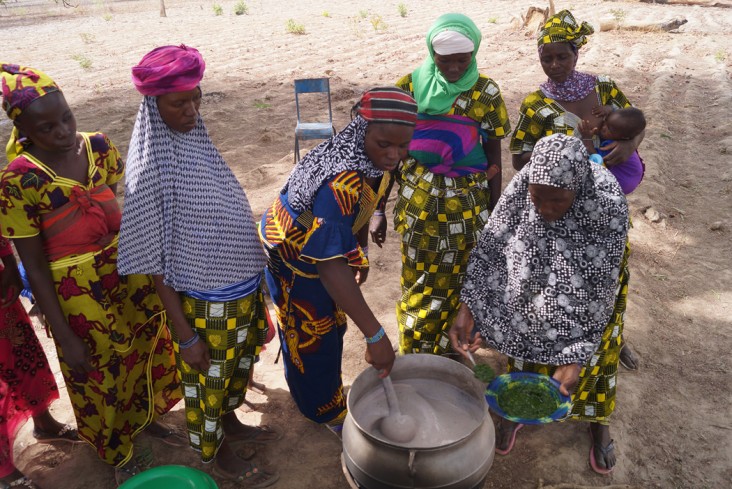Speeches Shim

For the 1,100 women and men living in N’Goloclola, a rural village in the south of Mali, making sure that children in the community have access to nutritious food is a top priority. Community leaders, such as Famoussa Berthé, are deeply committed to making this happen.
After seeing the success of the Feed the Future Mali Horticulture Scaling Project in nearby villages, Berthé decided to attend trainings in vegetable production and behavior change communication sessions on water, sanitation and hygiene (WASH), nutrition and maternal and child health.
“Some people expressed reservations about my participation,” Berthé said. “They said I am too old, and that it would be difficult for me to travel to training sessions and to start a vegetable garden.”
Berthé, however, was determined to improve WASH practices, including using latrines to eliminate open defecation and handwashing with soap, and making sure that the people in his village had enough good, nourishing food to eat. He worked with his wife, Fatoumata Traoré, to mobilize people to join their garden project.
“My husband and I are older, so it is easier for us to engage young people because, according to our tradition, young people show respect to their elders,” Traoré said. “And it is also easier for us to engage community leaders and other seniors to support young mothers and fathers. We can help make behavior change easy for young people who are not willing to go against the wishes of their parents.”
After attending the trainings, the couple began organizing their sessions to educate their neighbors about optimal infant and young child feeding and WASH practices, maternal and child health and family planning. They also met with community leaders and the village chief to request a piece of land for a community garden. They got 1.5 hectares with which to work, a space larger than a soccer field.

Nearly 140 people, including 125 women, are now growing and harvesting vegetables. The garden has increased access to and consumption of fresh, healthy, local foods, especially vegetables and fruits; serves as a tool to educate community members about food and child nutrition; and generates additional income for the community.
The couple also established a support group of community leaders and residents that organizes training and awareness sessions on vegetable production, nutrition, WASH and health. The support group also organizes household visits to help pregnant women and young mothers prepare nutritious meals for themselves and their families.
“Over the time that we have been conducting our activities, parents have noticed fewer episodes of child illness, and they have been able to reduce their expenses for health-related needs,” Berthé explained.
Surplus production from the community gardens earned the group around $5,200, which goes back to the community to pay for gardening inputs, cooking demonstrations, maintenance of the village borehole and wells, and to buy small hygiene kits for vulnerable households.
Taking a holistic approach to improving food security and health, the Feed the Future Mali Horticulture Scaling Project works to improve the lives of families across Mali by increasing Mali’s health outcomes and economic growth. Combining Feed the Future; water, sanitation, and hygiene; and nutrition activities, the project conducts joint activities to build the capacity of smallholder farm gardens. This program is active in Mopti, Sikasso, and Timbuktu.

Comment
Make a general inquiry or suggest an improvement.